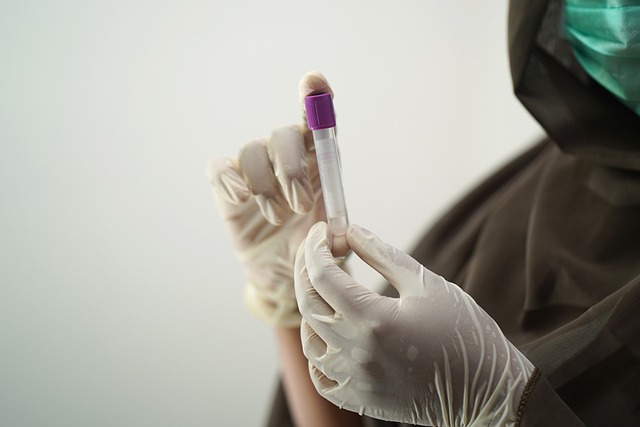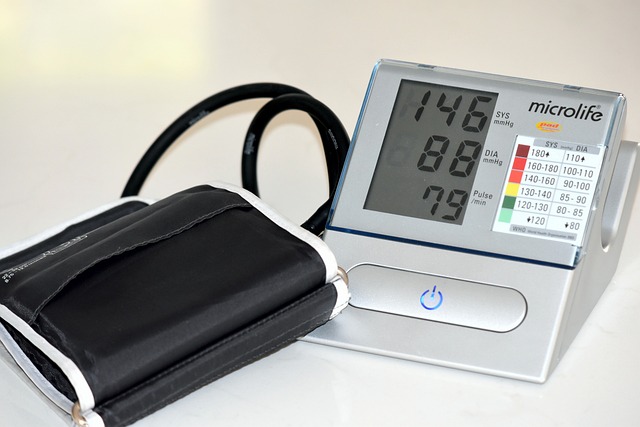The UK Testosterone Blood Test is a critical diagnostic tool for assessing male hormonal health, particularly as men age and experience a natural decline in testosterone levels. This decline can lead to various well-being issues, including decreased libido, reduced energy, and an increased risk of osteoporosis. Available through the NHS or private clinics, this test accurately measures peak blood testosterone concentrations, especially when taken in the morning, and is essential for identifying low testosterone levels that may signify hypogonadism. Regular monitoring via the UK Testosterone Blood Test enables early detection and management of health issues related to hormonal imbalances. It supports healthcare professionals in diagnosing this condition and crafting personalized treatment plans, often involving hormone replacement therapy (HRT), to alleviate symptoms and improve quality of life. The National Institute for Health and Care Excellence (NICE) guidelines recommend that low total testosterone levels below 8 nmol/L be considered indicative of hypogonadism. UK healthcare providers take a patient-centered approach to treatment, offering various TRT options like gels, patches, or injections, tailored to individual preferences and health needs, with ongoing monitoring to ensure optimal hormone levels for sustained well-being. The UK's comprehensive approach to TRT reflects its commitment to personalized medicine, addressing the unique requirements of each man effectively.
Men’s health encompasses a broad spectrum of considerations, and one pivotal aspect is the regulation and impact of testosterone levels. This article delves into the significance of testosterone for male well-being and the role of the UK Testosterone Blood Test in diagnosing and managing related health issues. We will explore how this diagnostic tool provides insights into a man’s overall health, guiding personalized treatment plans within the UK healthcare framework. Understanding the intricacies of testosterone’s role, the process of conducting the test, and interpreting results are crucial steps in maintaining male vitality.
- Understanding the Role of Testosterone in Male Health and Its Impact on Well-being
- The Process and Significance of UK Testosterone Blood Test for Diagnosis and Management
- Interpreting Test Results and Tailoring Treatment Plans Post-Testosterone Level Assessment in the UK Context
Understanding the Role of Testosterone in Male Health and Its Impact on Well-being

testosterone plays a pivotal role in various aspects of male health, influencing everything from sexual function to muscle mass and bone density. As men age, their testosterone levels naturally decline, which can lead to a host of well-being issues such as decreased energy, reduced libido, and an increased risk of osteoporosis. Understanding the role of this hormone is crucial for maintaining optimal health. In the UK, healthcare professionals often recommend a Testosterone Blood Test as a reliable means of assessing hormonal levels. This simple blood test, readily available through the NHS or private clinics, can provide valuable insights into a man’s overall health status. If testosterone levels are found to be low, it may indicate hypogonadism, a condition that can significantly impact quality of life and should be addressed promptly. Monitoring testosterone levels with regular UK Testosterone Blood Tests is an essential step in proactive male healthcare, allowing for timely interventions to support well-being and manage associated health risks effectively.
The Process and Significance of UK Testosterone Blood Test for Diagnosis and Management

Men experiencing symptoms such as decreased libido, fatigue, or a reduction in muscle mass may benefit from assessing their testosterone levels through a UK Testosterone Blood Test. This diagnostic tool is a precise measure of testosterone concentration in the bloodstream, providing vital information for healthcare professionals to evaluate male health issues related to hormonal imbalances. The process begins with an early morning blood sample collection, as testosterone levels fluctuate throughout the day, and are typically highest in the morning. This sample is then sent to a certified laboratory for analysis, ensuring accurate results.
The UK Testosterone Blood Test plays a pivotal role in diagnosing and managing conditions such as hypogonadism, where low testosterone levels can cause a variety of health issues. A confirmed diagnosis through this test enables tailored treatment plans, which may include hormone replacement therapy (HRT). Monitoring testosterone levels over time helps manage the efficacy and safety of such treatments, allowing for adjustments to be made as needed. The test is instrumental in maintaining optimal health and well-being in men by ensuring that any disruptions to their endogenous testosterone production are identified and addressed promptly.
Interpreting Test Results and Tailoring Treatment Plans Post-Testosterone Level Assessment in the UK Context

In the UK, testosterone blood tests are a crucial diagnostic tool for assessing male health issues related to hormonal imbalances. Interpreting these results is a nuanced process that requires considering various factors, including age-related changes in testosterone levels and individual health conditions. The National Institute for Health and Care Excellence (NICE) guidelines provide a framework for interpreting test results, emphasizing the importance of total testosterone measurements below 8 nmol/L as indicative of hypogonadism, a condition associated with symptoms such as decreased libido, fatigue, and reduced muscle mass. Once a diagnosis is made, healthcare providers in the UK tailor treatment plans to each patient’s unique circumstances. Post-assessment, treatment may involve testosterone replacement therapy (TRT), which can be administered through various forms such as gels, patches, or intramuscular injections. The choice of therapy is guided by patient preference, response to treatment, and monitoring of testosterone levels to ensure they reach and maintain a range considered optimal for health and wellbeing. This personalized approach to TRT is essential in the UK context, as it aligns with the country’s commitment to patient-centered care and ensures that men receive effective treatments tailored to their specific needs and lifestyle factors.
In conclusion, testosterone plays a pivotal role in maintaining male health and overall well-being. The UK Testosterone Blood Test emerges as an indispensable diagnostic tool for evaluating hormonal status effectively. By understanding the implications of test results, healthcare providers can craft personalised treatment strategies that cater to individual needs within the UK context. Regular monitoring of testosterone levels through this reliable test is a step towards optimising men’s health and quality of life. It underscores the importance of proactive health management and the role of informed medical decisions in promoting vitality among men.
